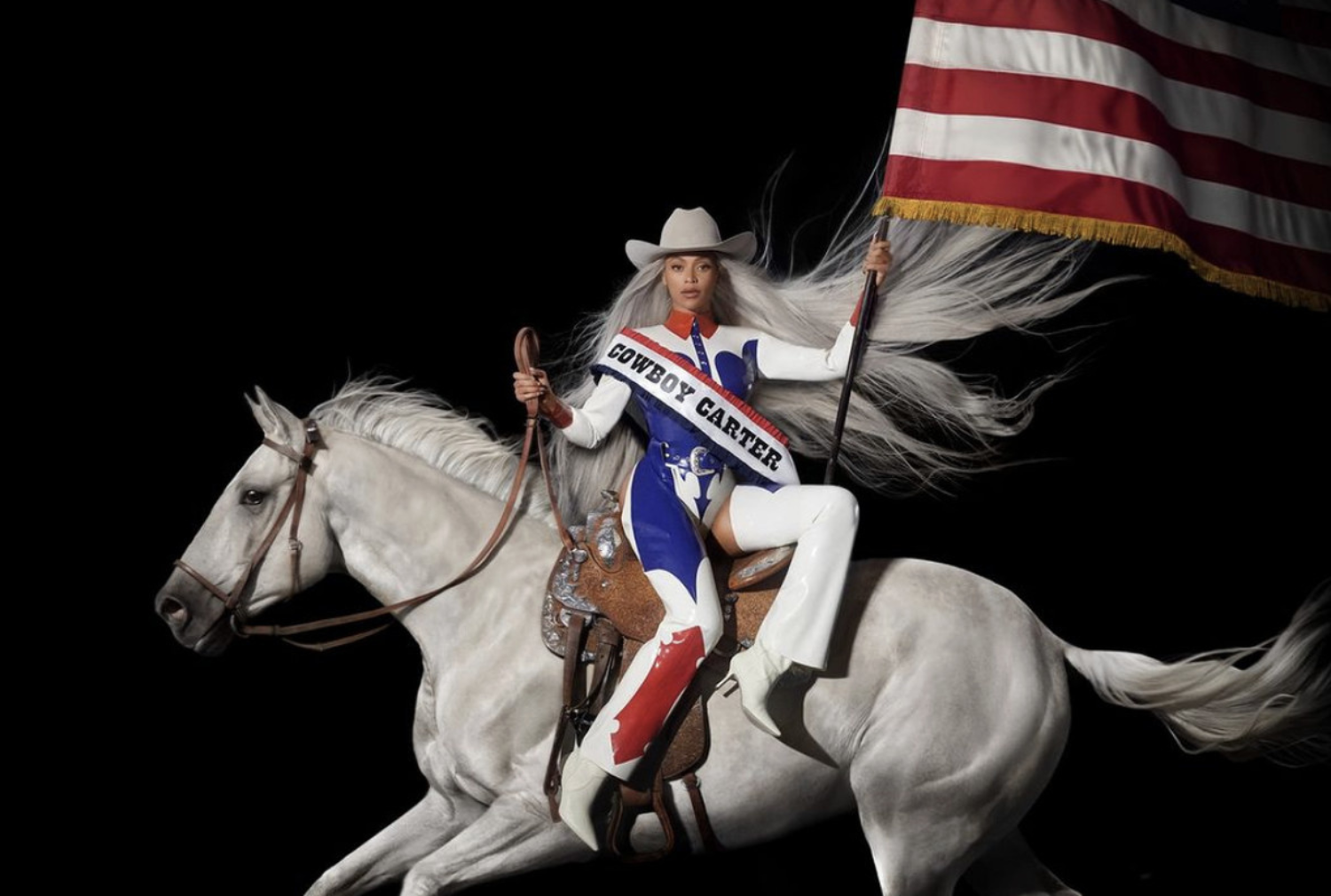Beyoncé Goes Country with “Cowboy Carter”: A Bold Move or Cultural Divide?
When we think of Beyoncé, we often envision her powerful vocals, mesmerizing performances, and chart-topping hits in the realm of pop and R&B. However, the Queen Bey has surprised us once again, this time by venturing into the world of country music with her latest album, “Cowboy Carter.” As the title suggests, Beyoncé embraces a new persona, blending her signature style with the rich traditions of country music. But what does this mean for the country music culture? And why is it dividing opinions?
A Fusion of Genres: Beyoncé’s Country Journey
Beyoncé’s decision to explore country music is a testament to her versatility and artistic growth. With “Cowboy Carter,” she seamlessly blends elements of pop, R&B, and country, creating a unique sound that defies genre boundaries. The album features collaborations with renowned country artists, such as Tanner Ardell, Willie Jones, and Miley Cyrus, showcasing Beyoncé’s commitment to authenticity and respect for the country music community.
One of the standout tracks on the album is “Blackbiird,” featuring Tanner Ardell. This soulful ballad combines Ardell’s twangy vocals with Beyoncé’s powerful range, creating a harmonious blend that transcends musical genres. “16 Carriages” takes a nostalgic turn, with Beyoncé reminiscing about her childhood in Texas and paying homage to her country roots.
Another noteworthy collaboration is “Protector,” featuring Rumi Carter, Beyoncé’s daughter. This heartfelt track explores the bond between a mother and child, with lyrics that resonate with fans from all walks of life. “Just for Fun,” featuring Willie Jones, infuses a playful energy into the album, reminding us that music is meant to be enjoyed and shared.
One of the most surprising collaborations on “Cowboy Carter” is “II Most Wanted,” featuring the dynamic duo of Beyoncé and Miley Cyrus. This track pushes the boundaries of both pop and country, showcasing the artists’ fearlessness in experimenting with their sound. Finally, “Levii’s Jeans,” featuring Post Malone, offers a fresh take on country music, incorporating elements of hip-hop and rock.
The Country Music Culture: Embracing Change or Resisting Tradition?
Beyoncé’s venture into country music has sparked a heated debate among fans and critics alike. Some argue that her foray into a traditionally conservative genre is a breath of fresh air, bringing new perspectives and audiences to country music. They believe that her immense popularity and influence will introduce the genre to a wider demographic, ultimately revitalizing the country music culture.
On the other hand, there are those who view Beyoncé’s country album as a threat to the authenticity and traditions of country music. They argue that her crossover success may overshadow the work of established country artists, leading to a dilution of the genre’s identity. This divide reflects a larger tension within the country music community, as it grapples with the balance between innovation and preservation.
It is important to remember that music has always evolved over time, with artists pushing boundaries and challenging norms. While Beyoncé’s transition into country music may be unconventional, it is a testament to the genre’s enduring appeal and its ability to adapt to changing times. Rather than dividing the country music culture, her album serves as a catalyst for dialogue and exploration.
Beyoncé’s Country Journey
Beyoncé’s “Cowboy Carter” album marks a significant milestone in her career and the country music landscape. By embracing country music, she demonstrates her artistic growth and willingness to explore new territories. The album’s diverse collaborations and fusion of genres showcase the power of music to transcend boundaries and unite artists from different backgrounds.
While the country music community may be divided in their opinions, it is essential to approach Beyoncé’s country journey with an open mind. Rather than viewing it as a threat, we should celebrate the diversity and inclusivity that she brings to the genre. After all, music has the power to bring people together, regardless of their differences.
